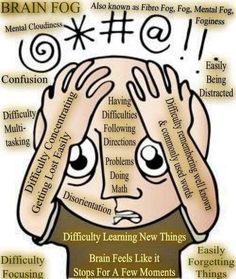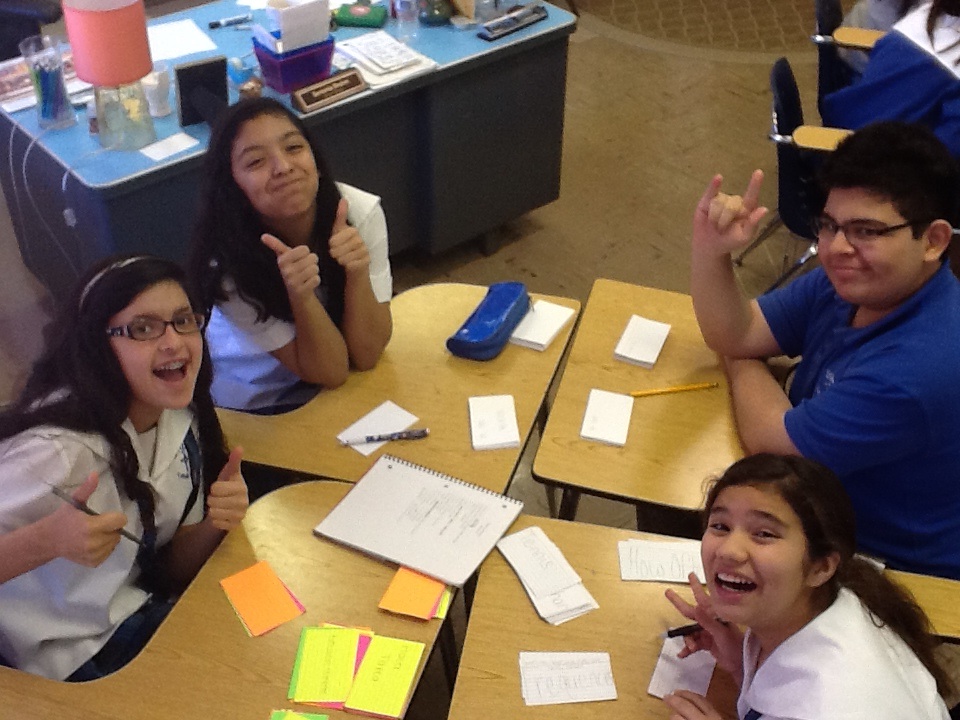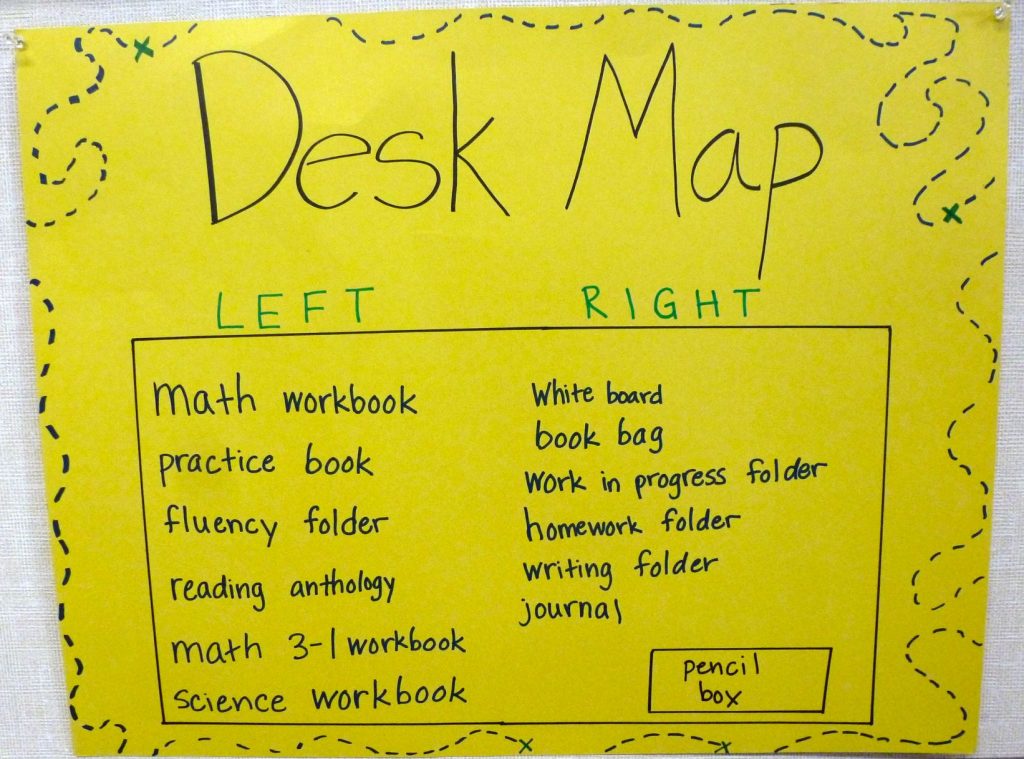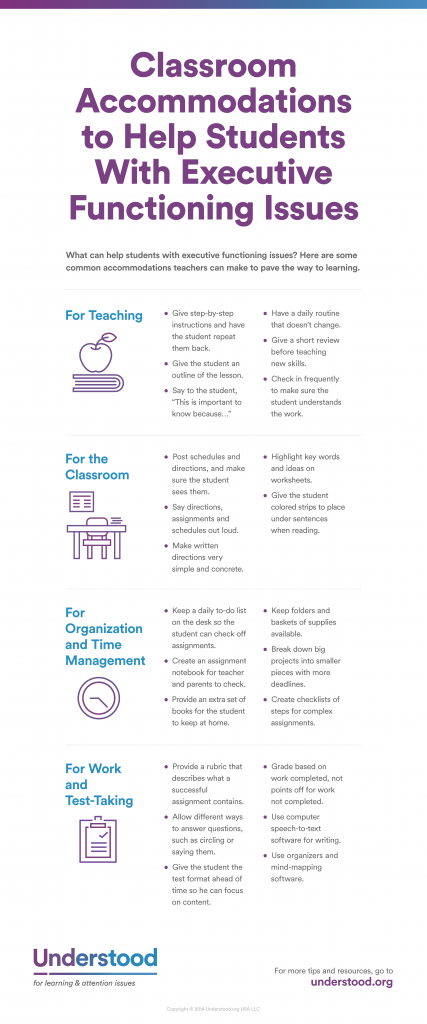
Executive function is a process that takes place in our brains. There are three main areas that make up executive functioning skills:
- Working memory
- The ability to think flexibly
- The ability to control one’s impulses
Roughly translated, these skills include:
- Paying attention
- Organizing
- Planning what one will do to get a task done
- Prioritizing what to do first
- Being able to focus on a task and keeping focused until the task is complete
- Understanding different points of view, whether that is with real humans or fictitious ones
- Keeping one’s emotions in check
- Keeping track of what you are doing, whether that is working on a school task or interacting with others
Most people develop these skills without much input from parents or teachers. However not everyone does. This is not because that kid’s parents didn’t teach him the skills. It is not because she comes from a less-than-desirable home situation. It is because not every person’s brain is wired in the same way.
Students who have issues with executive functioning skills often are in danger of becoming THAT student. Their behaviors often become a thorn in the teacher’s side.

Here are some examples of how issues with executive functioning skills might show up in the classroom:
THAT student
- Has difficulty getting started on what he is supposed to do
- Doesn’t seem to be able to get the task finished
- She can’t seem to figure out what is the most important thing to do first
- He seems to instantly forget what he just read
- She hears directions and almost immediately forgets them
- He can’t seem to follow directions
- She gets the sequence of steps she’s supposed to do mixed up
- He gets agitated, anxious, or disruptive when the classroom routine changes
- She gets upset out of proportion when she thinks classroom procedures have changed
- He can’t seem to get his thoughts organized so he tells or writes stories in a jumbled up sequence
- She seems overly emotional about little things
- He seems to fixate on things
- She can’t keep track of her belongings
- His desk looks like the inside of a dumpster
- Her time management skills seem to be nonexistent
By now, you are probably thinking of a student who shows one or more of these characteristics.
You may be thinking, “This sounds like ADHD.” Many people with ADHD also have executive functioning skills. However, one does not have to have ADHD in order to have difficulties with executive function.
What can teachers do to help kids with executive function deficits, and keep them from melting down in the classroom?
Think about how you can explicitly teach the required skills.
For example, if you expect students to write a newspaper article, you can demonstrate that the most important information comes in the first paragraph. Subsequent paragraphs provide the “who, what, when, where, why, and how” of that important information.
You might cut up newspaper articles and have students work with partners to put the paragraphs in a logical order. You might work with the class to create an anchor chart. You can refer frequently to that anchor chart.

Think about how you can scaffold the desired behavior.
Let’s take that dumpster of a desk as an example. Many teachers have found that creating “desk maps” helps all students organize their desks.

But just posting the map isn’t enough. The teacher must help students use it. For example:
Teacher: Boys and girls, in a second I am going to tell you to put away your math workbook and get out your writing folder. Don’t start until I tell you! First, tell me, where does your math workbook go? Julie? That is correct. Sam, tell me what Julie said. Yes. Very good. Now, where will you find your writing folder? Jack? Hm, I think you are getting the journal and the writing folder mixed up. Look at the anchor chart. Yes, Jack, that is correct.
The following chart describes some of the things teachers can do to help students with executive functioning issues.

You can find a 26 page pdf booklet about executive function at
https://www.understood.org/~/media/040bfb1894284d019bf78ac01a5f1513.pdf
We can help students learn executive functioning skills!